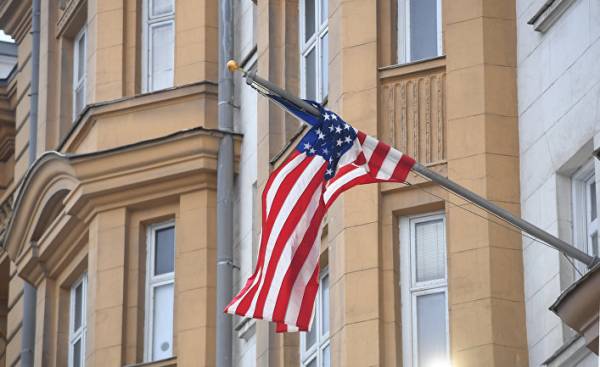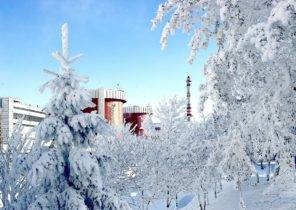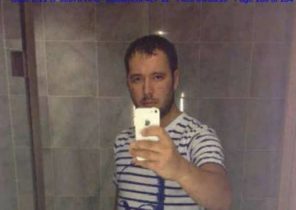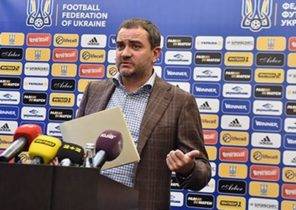
This week President Vladimir Putin announced that the 755 employees of diplomatic facilities of the United States in Russia will be deprived of their work. It is not clear what this means for long-term relations between the two countries. And what it means — at least partially — for the core team of U.S. diplomats who will remain in Russia. Now who will answer the phone, wash the floors, drive cars, work in the cafeteria and the mail.
This may seem strange, but the United States Embassy in Moscow was faced with the same problems three decades ago. You remember Clayton Lonetree (Lonetree Clayton)? This young marine from the protection of the Embassy was in Moscow in the mid 1980-ies, and he made the mistake of falling in love with a seductive Russian woman named violet the Seine, which turned out to be a KGB spy. Much like the lover, the hero of some novel of John Le Carre, Sergeant Lonetree was transferred to Ms. Sein copies of secret materials and documents, and when this was discovered, he was tried by a military court and sentenced to 30 years in prison. The United States government, concerned about this scandal, was fired, then many who worked in the Embassy of Soviet citizens, and shortly thereafter the Soviet government has deprived of the opportunity to work at the American Embassy and all the rest.
And suddenly it so happened that I did not become secretaries, cleaners, drivers and nannies. Who will fill these jobs? Who might be interested in doing this mundane work for negligible wages in the harsh climate of Moscow during the cold war?
Well, like me. When I almost was not very practical the bachelor of arts degree in Russian language and literature, some of the professors told me that a family of diplomats need a babysitter during their trip to Moscow. I sent a letter to the family, do not forget to attach your photo with a happy smile, like Mickey mouse, and after a few months of correspondence they offered me the job to care for their infant child. And in August, 1988 I was in Moscow.
Embassy of the United States — then as now — is a small town. It was built in the early 1980-ies and has an underground floor with grocery store, bowling alley, Barber shop, gym and swimming pool. Residential premises are located along two walls with a green lawn in the center. And with one hand over the territory of the Embassy rises for Russian spies it was a very convenient place for observation — one of the “Seven sisters”, that is one of the seven spectacular high-rise buildings in the Gothic style, built in different parts of Moscow in the Stalin era.
At the Embassy I was surrounded by elegant young men, most of whom were hired by the company Pacific Architects and Engineers, won a contract for a fast filling of all vacancies. Among them were, for example, Josh (Josh), who at the time was 20. He just graduated from the University of California at Berkeley, and in Moscow he came in order to drive a truck to deliver goods. There was also free Russian-speaking Nancy (Nancy), which performs different kind of fine work including secretarial in Spaso house, the Ambassador’s residence. We were a group of enthusiastic Russophile, we wanted to study Russian, and to improve our knowledge of the language. However, responsible for safety of Embassy staff had other ideas.
Soon after my arrival I had the first briefing with responsible security team for the state Department. It was like a tutorial for beginners on the subject of “the paranoia of the cold war” — the result of a serious diplomatic mistakes of the 1970-ies, when the United States allowed Soviet workers to build the Embassy of the United States. Don’t say anything if you don’t want to know about this Tips. Never meet alone with someone of the citizens of the USSR. Write reports about the people you meet, and include in there what you spoke with them. Never enter into an intimate relationship with someone from the USSR. And immediately inform us if you become aware that someone else at the Embassy is doing — but if you do not inform and we will find out that you knew about it, you will have the same problems as them. From that moment I realized that our people will be watching us and listening to us as carefully as the Advice.
All this could seem excessive, but I quickly realized that it is not. During my work at the Embassy was very different strange things. One Saturday, when I got acquainted with sights of Leningrad, unknown to me Russian came up to me and said quietly, “how are things at the Embassy?” (it’s a classic KGB, told me then a diplomat, and this is done in order to “make you understand that you are being followed”). Another time one new Russian friend, a pianist from the Moscow Conservatory, with whom I accidentally met in the metro — mentioned my plans for the coming weekend, although I’m still nothing to him about not talking. Even more threatening was a different story. Being a little drunk, I told one American that in University I had a very close friend, and afterwards at a reception in the Embassy began to appear beautiful Russian woman that Flirty was talking to me. If she was a KGB agent, aimed to seduce me, as did the violet of Sein with Clayton Lonetree? Or I made it up? To accurately answer these questions was impossible.
I spent seven magnificent, fascinating and very strange months in 1988 and in 1989 in Moscow, working in the Embassy of the United States in this city. Since then it has been almost 30 years. I always come to Russia, I witnessed the hostility of the cold war period gave way to cautious friendship in the middle of 1990-ies, followed by a slight cooling in the 2000s, and today everything was back to a cold war 2.0. It is not yet clear whether President Putin at some point for new applicants to fill recently opened jobs. If he will allow, it seems, people who would agree — whoever they were — would be to work in an environment as strange, sad paranoia with which we are faced.







